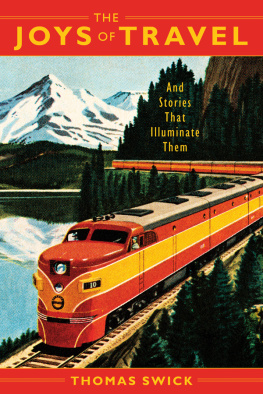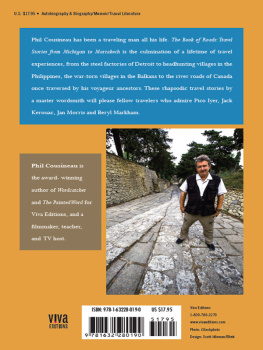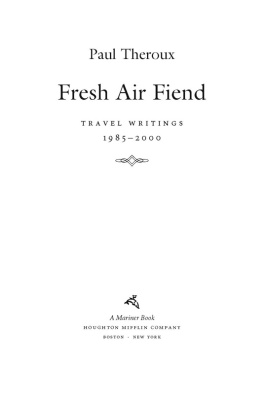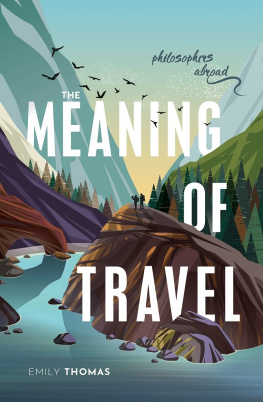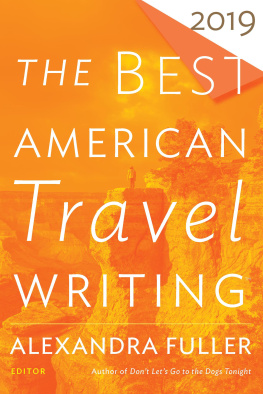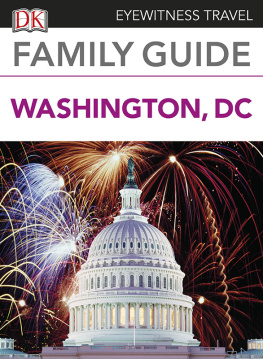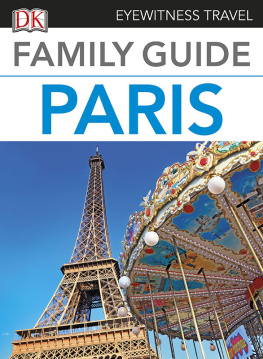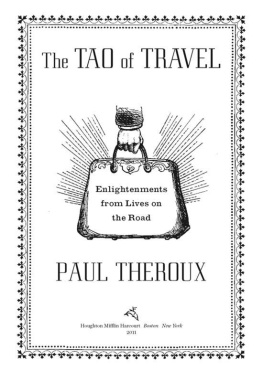Copyright 2016 by Thomas Swick.
All rights reserved. No part of this book may be reproduced in any manner without the express written consent of the publisher, except in the case of brief excerpts in critical reviews or articles. All inquiries should be addressed to Skyhorse Publishing, 307 West 36th Street, 11th Floor, New York, NY 10018.
Emotional Connection appeared in a shorter version in The Morning News .
Warsaw Redux appeared in a much different version in National Geographic Traveler .
The Place You Could Be Looking For and Heaven of the Bavarians appeared in the South Florida Sun-Sentinel .
What I Like About Key West appeared in the Oxford American .
My Days with the Anti-Mafia appeared in The Missouri Review .
Travels with a Book appeared in The Weekly Standard .
Skyhorse Publishing books may be purchased in bulk at special discounts for sales promotion, corporate gifts, fund-raising, or educational purposes. Special editions can also be created to specifications. For details, contact the Special Sales Department, Skyhorse Publishing, 307 West 36th Street, 11th Floor, New York, NY 10018 or .
Skyhorse and Skyhorse Publishing are registered trademarks of Skyhorse Publishing, Inc., a Delaware corporation.
Visit our website at www.skyhorsepublishing.com.
10 9 8 7 6 5 4 3 2 1
Library of Congress Cataloging-in-Publication Data is available on file.
Jacket design by Jane Sheppard
Print ISBN: 978-1-63450-821-6
Ebook ISBN: 978-1-63450-823-0
Printed in the United States of America
To Hania
My journey had taken on a new dimension and all prospects glowed.
Patrick Leigh Fermor, A Time of Gifts
Contents
Introduction
We live in a visual age.
Why am I even writing this?
Because thoughts cannot be photographed.
Theyre not the only things.
Of all human activities, none is more associated with the visual than travel. Passport photos. Window seats. Sightseeing. Observation decks. Scenic overlooks. Open-roof buses. Glass-bottom boats. Art museums. Postcards. Vacation videos. Road movies. The Travel Channel. The Last Time I Saw Paris. The National Geographic photographer. 1,000 Places To See Before You Die . Your Best Shot. For years, The New York Times Travel section ran an end-page essay, then it was replaced with an end-page photograph. A tourist traveling without a camera is as unimaginable as a teenager drinking nonalcoholic beer. What would be the point? Where would be the proof?
When I was first asked to travel with a video camera, during my waning days as a newspaper travel editor, I resisted. My argument was that filming an encounter changes the dynamic; people act differentlyless naturallywhen they know their words and actions are being recorded. I never even used a tape recorder; I jotted down conversations in a powerless, innocent-looking notebook.
I did take photos, often of people, but not the ones I interacted with. I always thought that to be invited into someones home and then to whip out a camera would be the height of rudeness. It would not only destroy the mood, it would firmly establish the wall between tourist and local that the locals, by their kind invitation, had graciously tried to dismantle. It would treat people as objects, no different than their citys buildings, monuments, and statues.
Unless of course they started snapping pictures themselves. You dont have to be a tourist to love souvenirs.
So lets say you do take out your camera or your smartphone, everyone spends a couple spectral minutes mugging. The pictures will capture a certain bonhomie; but there will be nothing in them of the astonishment, gratitude, or privilege you feel on having made a connection, on having entered into the life of the place.
This is not to denigrate photography; as an art, its capable of conveying deep and complicated emotions. Rather, its to elevate travel, whose greatest gifts elude the camera.
Joys
Anticipation
Not just unphotographable, anticipation frequently goes unacknowledged, or at the least, unappreciated. Still, we are all familiar with it: the thrill of picking a destination, singling out a country, a city, or an island, and then picturing ourselves there, unburdened and happy. We start the countdown to our departure. We now have someplace to look forward to.
Anticipation is rarely idle; it inspires us to act and then grows as we do. The Internet gives us links upon links that lead seemingly into infinity, while in a more traditional snowballing, guidebooksafter listing the sights and hotels and restaurantsrecommend other pertinent books.
As soon as I dream up a trip, I plan my reading accordingly. In fact, when I have no trips upcoming, I have a hard time deciding what to read. The worldand my condoare so full of books its extremely difficult to settle on a few. If travel expands our experience and broadens our minds, the anticipation of travel helpfully narrows our reading list.
For without any borders, where do you begin? People who were good students in college often stop reading after graduation. Not because they dont enjoy it, or because they dont have time, but because they no longer have a syllabus. They stand paralyzed before the ever-growing abundance of books.
They need to plan a trip.
Before departure, I read as much as I can about where Im going: travel books, biographies of native sons and daughters, memoirs, poetry, novels, which give more than information; they provide background, atmosphere, substance, insight (as well as topics for upcoming conversations). Because my reading tastes lean toward nonfiction, there is now a growing group of novelists whose works would have remained unread by me if not for my frequent flyer status.
One such writer was Giuseppe Tomasi di Lampedusa. I was going to Sicily for the first time, so before the trip I visited my local library and took out The Leopard . My response to the novel was probably different from that of most readers; I was less interested in the romance of Tancredi and Angelica than I was in the descriptions of Palermo. I picked up my pen and copied into my notebook passages like: It was the religious houses that gave the city its grimness and its character, its sedateness and also its sense of death which not even the vibrant Sicilian light could ever manage to disperse. The travel writing of a (gifted) resident.
If asked to play a word association game with countries Ive visited, I would, for many, utter the names of writers (not always native) who seem synonymous with each place: EgyptMahfouz. TurkeyPamuk. ColombiaMrquez. UruguayGaleano. TrinidadNaipaul. St. LuciaWalcott. MalaysiaBurgess. CroatiaWest. PortugalPessoa. CanadaMunro. They are literary consuls; their works sublime, essential field guides.
There are countries that, visited for the first time, allow for hours of enjoyable rereading. During one well-traveled period in the nineties, it seemed that every place I wentMexico, Haiti, Vietnamhad served as the setting for a Graham Greene novel. Like many Americans, I dream of someday driving cross-country, and the pleasure will be two-fold, as Ill return gratefully to the pages of Lolita.
There are places, on the other hand, that inspire me to finally tackle classics Ive long avoided. I read Crime and Punishment a number of years ago only because of an upcoming trip to St. Petersburg. (I had been put off Dostoevsky by Lolita s creator, a fellow Petersburger who found him melodramatic.) Before a trip to Greece I not only read The Iliad , I audited a course on it at a local university. (A move I highly recommend; when I read The Odyssey on my own I didnt enjoy it nearly as muchand its a travel book!)

